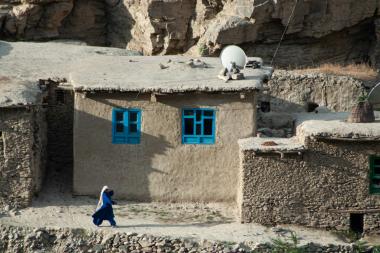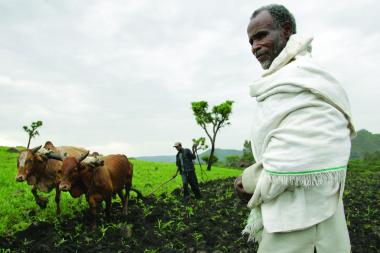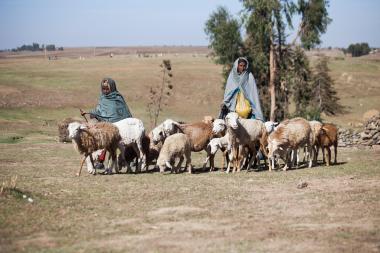Findings From Field Studies of Post-Harvest Storage and Processing in Afghanistan
This report, based on interviews with farming families, sets out actions to support food security in Afghanistan by strengthening post-harvest storage and food processing practices in rural areas.
Post-harvest storage and food processing was neglected in Afghanistan’s agricultural rehabilitation agenda after 2001. The limited investments have prioritised developing refrigerated storage facilities for private-sector companies close to cities, reflecting an emphasis on market development. This has ignored the critical role of post-harvest storage and processing for food security.
Little systematic data exist on current post-harvest processing and storage practices in rural Afghanistan, on the significance of post-harvest losses for different crops, and on the performance of improved zero-energy storage facilities that have been introduced. The role of women in post-harvest management has been neglected too.
In this research, SPARC and its partner - the Afghanistan Research and Evaluation Unit Organization - spoke to men and women from 47 households across 18 villages in Laghman, Herat and Badakhshan provinces. We asked them about existing and improved post-harvest storage practices. Our aim was to provide sufficient background information to be used to justify post-harvest interventions and develop design criteria.
Our results found:
- The perishability of crop produce varies according to crop, altitude and agro-ecology.
- All households grow grain staples and they rarely sell surpluses at harvest. Usually, grain is stored, losses are low and sales are episodic to raise cash to meet other household expenditure.
- High losses of fresh, perishable crops compel households to sell any produce that is surplus to immediate consumption needs at harvest time. They sell when prices are at their lowest but end up buying the same commodity later at higher prices to meet household consumption needs.
- Women play a key role in post-harvest management.
The policy implications are:
The contribution of improved post-harvest storage to food security should be prioritised and the role of women in this should be addressed systematically in the design of interventions.
Attention should be paid to social and agro-ecological context in the design of post-harvest storage and to the selection of priority commodities. Inclusive access to post-harvest storage must be ensured.
Most Afghan farming households are engaged in the market, but their primary concern is meeting household subsistence needs. Expanding access to improved post-harvest storage facilities for smaller farmers must give greater weight to food security needs.



